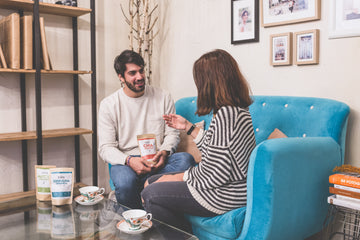What is Celiaco ? by Elena Bau
for Baia Food en Feb 21, 2025
Tabla de contenidos
Today, May 27th is National Celiac Day and from Baïa Food Co. we we want bring closer a reality experienced by more than half a million people in Spain.
What is it?
Celiac disease is a food intolerance to gluten. One of the main drawbacks for these individuals is the prohibition of eating foods containing gluten for the rest of their lives. For example pasta, bread, cereals and beer. And even many others that don't contain it originally, but to which it has been added during processing. For example, rice, sauces, nuts, and cold cuts. If you take any of these products, the gluten present in the food damages the lining of the small intestine, which in turn makes it impossible that the body can properly digest and absorb foodThis situation eventually leads to chronic malnutrition, with deficiencies in calories and essential nutrients.
Another major drawback of celiac disease is that gluten-free products are more expensive than conventional ones and are not easily available. This is due to the additional cost of production, but it doesn't make much sense to pass this on to the end consumer with higher prices.
What do we demand?

Therefore, we joined our friend Elena Bau who tells us how, through her experience, she has improved and learned to understand her body until she is fully adapted to the intolerances she suffers from. From here we thank her for her collaboration and express that she is a great example for all of us.
When did you realize you had celiac disease? Why? How do they diagnose you? What's the first thing that comes to mind when you hear this?
Elena: I can't remember not having a stomach ache. In fact, I thought it was normal and that, like me, everyone else had stomach pain after eating. I've been to many doctors over the years, and I guess at some point I threw in the towel, stopped looking for an explanation, and decided to live with the pain. Over the past few years, due to the stress, my pain had worsened, and after stumbling through a few appointments, I found a doctor again, Dr. Vigaray, and I don't think I've ever done anything better in my life! It's been a year since then, and although it took a long time to get my diagnosis because I had other issues (fructose intolerance, anisakis, histamine, helicobacter pylori, bacterial overgrowth...), I can finally say, a year later, that I practically have no discomfort after meals. When I found out I couldn't eat gluten, I'd already been diagnosed with fructose intolerance. Although being celiac, or having any other condition that restricts your diet, is difficult to manage, my least affliction was gluten. We have a culture that revolves around eating, drinking, and being with your loved ones over a beer or wine. Not being able to choose is difficult, especially when you know it's for life. I think society has made a lot of progress in raising awareness about celiac disease, but there's still a lot to do. Not just with this but with many other intolerances. And when I say raising awareness, I'm not saying that when you go to a restaurant, the menu should list the dishes that contain gluten. I'm talking about empathy, I'm talking about trying to understand what it means for someone to go out in their free time to dinner, to a party, or to have a glass of wine and at some point be suffering or thinking that maybe they can't eat anything. They prefer not to say anything so as not to upset others, they don't want to impose restrictions. I think that's a big part of the work, because every day there are more people with food restrictions, and it can happen to anyone. In my case, fructose complicates things much more; it doesn't even appear on restaurant menus...
What changes should you make in your daily life to adapt to this new situation? Adapting to change is always difficult. How did you deal with this initial stage?






